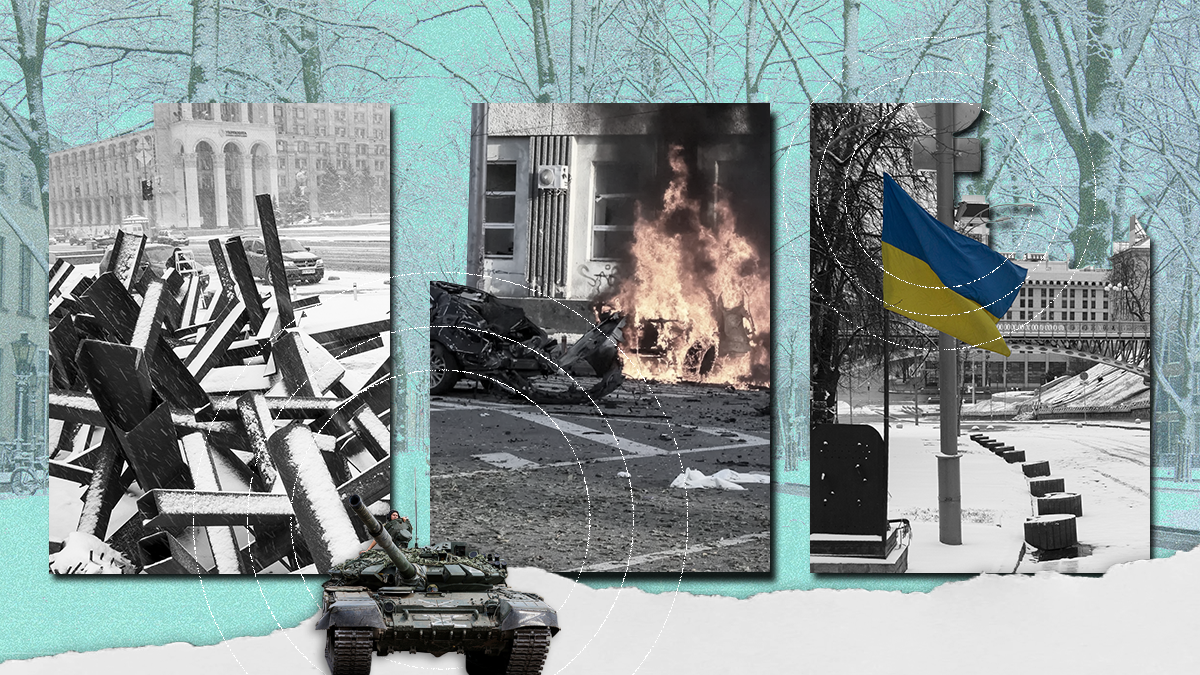By any measure, it’s been a good few months for the Ukrainian military. Kyiv’s commanders have liberated thousands of square miles of territory occupied by Russia earlier in the war.
But now, the Ukrainian people face perhaps their biggest test yet. The Kremlin, reeling from Ukraine’s recent battlefield successes, has enlisted the help of a reliable Russian ally.
“Vladimir Putin has tried to weaponize winter,” warned NATO Secretary General Jens Stoltenberg at a recent alliance summit in Bucharest.
Ukrainians vs Putin and an Ancient Russian Ally | GZERO World with Ian Bremmer
General Moroz (“General Frost”), as the seasonal help is known in Russian, has been sweeping in to bail out Moscow since the days of Napoleon. Now, Putin is making his own 21st-century effort to freeze the Ukrainian population into submission.
For weeks, barrages of Russian cruise missiles have deliberately targeted Ukraine’s energy infrastructure. Key facilities of Ukrenergo, the national energy company, have been struck more than a dozen times since October, reducing Ukraine's ability to provide heat and power to its people at a time when nighttime temperatures begin to dip below freezing.
After one recent strike in mid-November, half the country was left without power, according to Human Rights Watch. A subsequent strike several days later left Kyiv, a city of three million, entirely in the dark. Now, major cities are forced to ration power to conserve resources. Cuts to electricity – and with it, water for apartment buildings – can come as often as three times a day now.
Russia says that energy infrastructure is a legitimate target, arguing that power plants are used to support Ukraine’s military as part of the war effort. But human rights watchdogs disagree.
“Russia appears to be seeking unlawfully to create terror among civilians and make life unsustainable for them,” according to a new Human Rights Watch assessment of Russia’s approach.
The World Health Organization says as much as a quarter of Ukraine’s 40 million people are now without power, warning of a “therma-crisis” this winter.
For Iryna B., a 25-year-old translator who moved to the capital shortly before Russia invaded in February, life in the city is getting harder.
“It’s absolutely dead here – no electricity, no water, no cell coverage,” she told GZERO Media on a recent walk through the nighttime streets of a frigid, blacked-out Kyiv. “I feel like I’m living in the forest.”
But Iryna says Kyivans are undaunted. After all, Ukraine has already held at bay a much larger enemy whom many expected to roll to a swift victory when the war began 10 months ago.
What’s more, Kyiv was the prize of two of the most brutal battles on World War II’s Eastern Front – a history that people here still remember.
“We’ve become very flexible as Ukrainians,” Iryna says. “I wouldn't say this is something very unique for us, because we have a history. Many people [have gone] through such things and yeah ... we're tough.”
Vladimir Putin has enlisted a formidable ally in winter, but the resilience of Iryna and her fellow Kyivans suggests the Russian president may, yet again, have underestimated his Ukrainian opponents. Perhaps only springtime will tell.
For now, “life goes on as it used to, and if there is no power, no water,” Iryna says, "we will get through it. This won’t lessen our solidarity – it will only make it stronger.”
